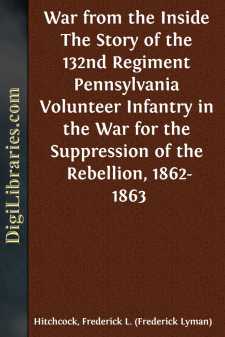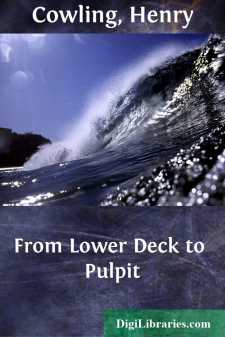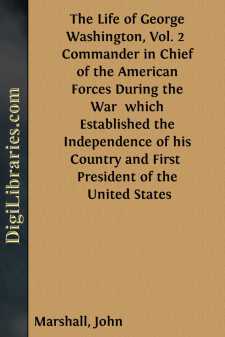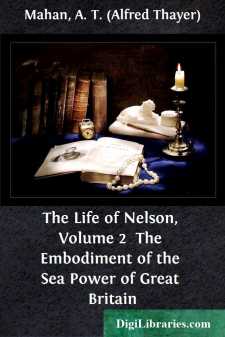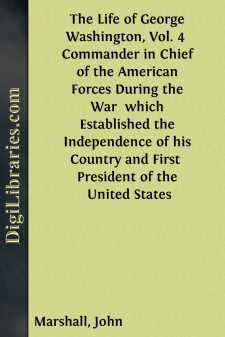Biography & Autobiography
- Adventurers & Explorers 15
- Artists, Architects, Photographers 16
- Business 2
- Composers & Musicians 14
- Criminals & Outlaws 5
- Editors, Journalists, Publishers 6
- Educators 1
- Entertainment & Performing Arts 3
- General 73
- Health, Exercise & Fitness 1
- Historians 3
- Historical 83
- Law Enforcement 1
- Lawyers & Judges 3
- Literary 147
- Medical 7
- Military
- Naturalists, Gardeners, Environmentalists 8
- Personal Memoirs & Diaries 226
- Philosophers 3
- Political 9
- Presidents & Heads of State 38
- Religious 38
- Rich & Famous 27
- Scientists 13
- Women 31
Military Books
Sort by:
LORD COCHRANE'S ARRIVAL IN GREECE.—HIS ACCOUNT OF HYDRA AND POROS.—THE CONGRATULATIONS OFFERED TO HIM.—VISITS FROM TOMBAZES, MAVROCORDATOS, AND MIAOULIS.—LETTERS FROM THE NATIONAL ASSEMBLY AND OTHER PUBLIC BODIES AND LEADING MEN.—THE DIVISIONS IN GREECE.—THE FRENCH OR MOREOT, AND ENGLISH OR PHANARIOT FACTIONS.—LORD COCHRANE'S RELATIONS WITH THEM.—THE VISIT OF KOLOKOTRONES AND...
more...
FIRST LESSONS; OR, DOING THE IMPOSSIBLE I was appointed adjutant of the One Hundred and Thirty-second Regiment, Pennsylvania Volunteers, by our great war Governor, Andrew G. Curtin, at the solicitation of Colonel Richard A. Oakford, commanding the regiment, my commission dating the 22d day of August, 1862. I reported for duty to Colonel Oakford at Camp Whipple, where the regiment was then encamped, on...
more...
by:
Henry Cowling
EARLY DAYS. Kingsand, though but a village in size, has a history of its own. Situated about five miles from Plymouth, on the Cornish coast, and being a fishing port, the inhabitants are on intimate terms with the sea. In the summer months one may observe many an indication of this relationship or intimacy'. Youngsters run about the beach and the village barefooted, most of them wearing the...
more...
by:
John Marshall
Birth of Mr. Washington.... His mission to the French on the Ohio.... Appointed Lieutenant Colonel of a regiment of regular troops.... Surprises Monsieur Jumonville.... Capitulation of fort Necessity.... Is appointed aid-de-camp to General Braddock.... Defeat and death of that general.... Is appointed to the command of a regiment.... Extreme distress of the frontiers, and exertions of Colonel...
more...
FOREWORD Time, though a good Collector, is not always a reliable Historian. That is to say, that although nothing of interest or importance is lost, yet an affair may be occasionally invested with a glamour that is not wholly its own. I venture to think that Piracy has fortuned in this particular. We are apt to base our ideas of Piracy on the somewhat vague ambitions of our childhood; and I suppose,...
more...
CHAPTER XIV. NELSON TEMPORARILY COMMANDER-IN-CHIEF IN THE MEDITERRANEAN.—RELIEVED BY LORD KEITH.—APPLIES TO RETURN TO ENGLAND ON ACCOUNT OF ILL HEALTH. AUGUST, August 1799—JUNE, 1800. AGE, 41. Upon Keith's departure, the command in the Mediterranean devolved upon Nelson, who for some time remained in doubt of the fact, but with his usual promptitude acted as if all depended upon himself....
more...
José Maria Jacobo Rafael Ramon Francisco Gabriel del Corazon de Jesus Gordon y Prendergast—to give the writer of this book the full name with which he was christened in Jeréz de la Frontera on March 19, 1856—belongs to an interesting, but unusual, type of the Scot abroad. These virile venturers group themselves into four categories. Illustrating them by reference to the Gordons alone, there was...
more...
by:
James Harrison
PREFACE. There are few works, the authors of which can possibly be permitted to recommend them as worthy of universal regard, without the imputation of intolerable vanity; an imputation little likely to be diminished by the consideration, that other writers, over whom a decided preference is claimed, may have previously occupied the same subject. A Life of Lord Nelson, however, replete with original...
more...
by:
William Beatty
Narrative Lord NELSON sailed from St. Helen's in the Victory, with the Euryalus frigate, on the morning of the 15th of September 1805, to take the command of the British Fleet cruizing before Cadiz. On the 18th he appeared off Plymouth; where he was joined by his Majesty's ships Thunderer and Ajax, with which he proceeded for his destined station. On the 20th he communicated by private signal...
more...
by:
John Marshall
CHAPTER I. Greene invests Camden.... Battle of Hobkirk's Hill.... Progress of Marion and Lee.... Lord Rawdon retires into the lower country.... Greene invests Ninety Six.... Is repulsed.... Retires from that place.... Active movements of the two armies.... After a short repose they resume active operations.... Battle of Eutaw.... The British army retires towards Charleston. 1781In South Carolina...
more...



